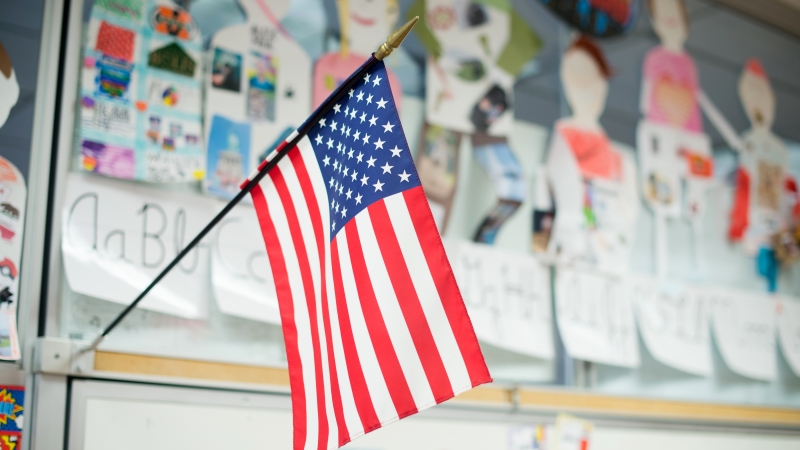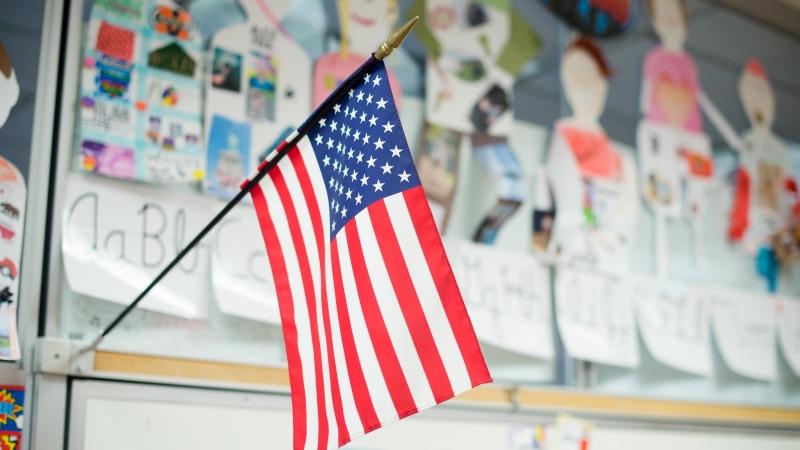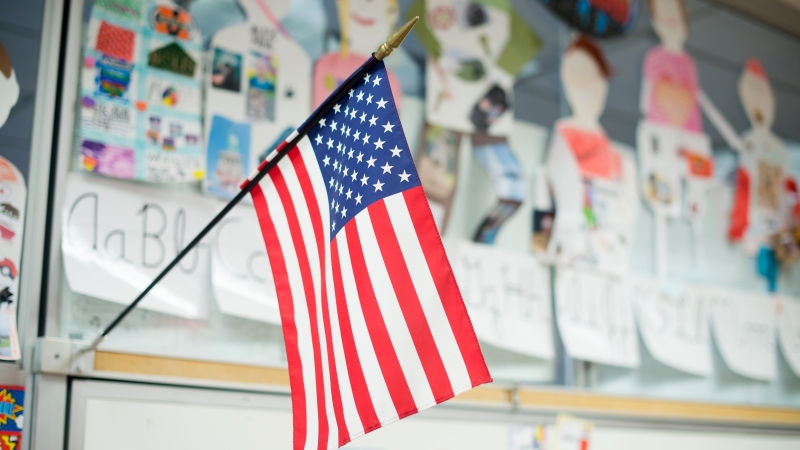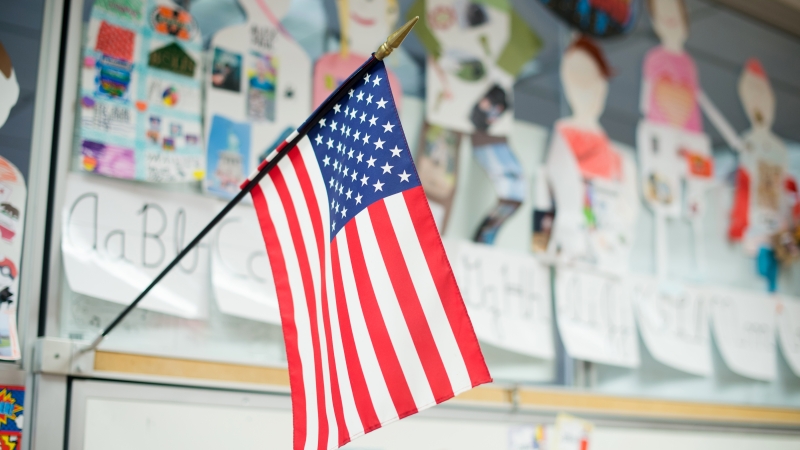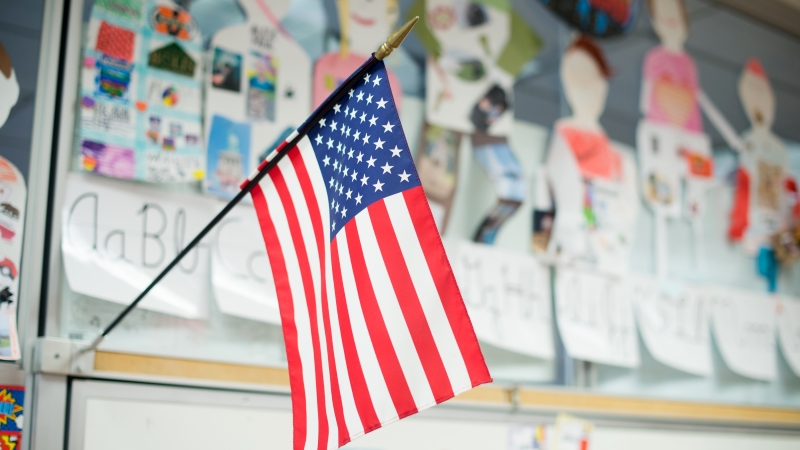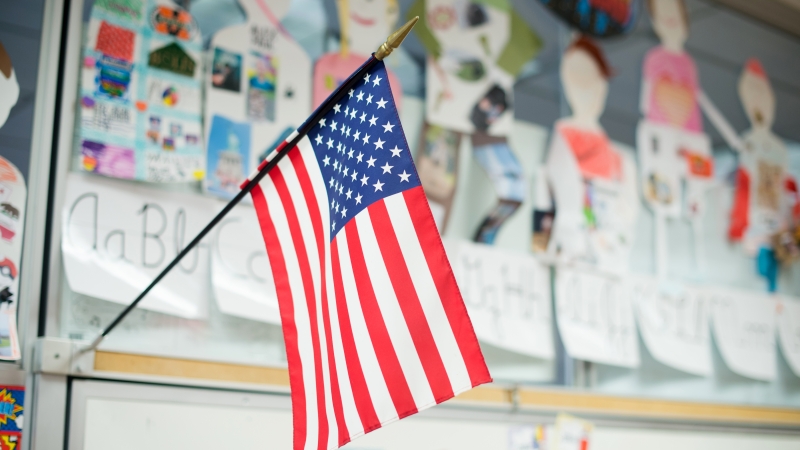
Virginia Board of Education Meeting Summary
April 24-25-26, 2018
Virginia Board of Education Retreat – April 24, 2018
Overview of the Board’s Comprehensive Plan Priorities and Goals on Teachers and Equity
The Board’s Chairman announced that the Board’s focus during the retreat will be on what Virginia is doing right concerning equity and the recruitment and retention of teachers and how best to sustain and enhance these strategies. The retreat should be considered the Board’s first stage in establishing policy.
Review of Recommendations, Data and National Trends on Teacher Shortages and Retention
The Board’s review of the recommendations, data, and national trends on teacher shortages and retention focused on the following:
- The areas where the greatest number of unfilled positions are in elementary educations and special education;
- The number of provisional licenses for critical shortage areas is increasing each year. Teachers on provisional licenses have 3 years to meet the criteria for full licensure;
- The percent of unfilled positions is greatest in the areas of math specialist and school psychologist because there are fewer of these positions in Virginia;
- Teacher production is cyclical and responsive to the state of the economy;
- Teacher production has grown steadily since 1985 and is projected to continue to grow 29% between 2011 and 2022;
- Although the number of enrollments has decreased, overall teacher preparation program completion has increased by 20%;
- The ten-year trend in teacher turnover in Virginia has increased by 10%. The reasons for teacher turnover are as follows (can indicate more than one reason): 55% indicated dissatisfaction; 43% indicated family/personal reasons; 31% indicated retirement; 31% pursue another job; and 18% cited financial reasons;
Teachers in Virginia earn about 30% less than their non-teaching counterparts in comparable positions (3rd lowest in wage competitiveness);
- Virginia ranks 30th in average teacher salary at $50,834 for 2016-17 (national average is $58,353);
- The average starting salary in Virginia with a bachelor’s degree is $40,473 with a range from $30,407 to $49,600;
Financial incentives play a role in teacher recruitment and retention. Research indicates that state financial incentive programs have potential to direct teachers to shortage areas, but they will lose their appeal if they are not sufficient, sustainable, and paired with improvements to working conditions. There are two types of incentive programs.
- The first type pays incentives for highly-effective teachers. This type of incentive program is effective when well-implemented but is dependent on valid system for identifying effective teachers.
- The second type of incentive program is designed for hard-to-fill subjects and schools.
- The impact of teacher salary increases show that teachers who earned a base salary of less than $40,000 were 17% less likely to continue teaching after five years than those who earned more than $40,000;
- A 1% increase in base pay increases proportion of teachers hired by 0.04-0.08 percentage points (based on experience level);
- A 1% increase in teacher pay reduces teacher turnover rate by 0.16 percentage points;
- The shape of salary schedules matters in that impact of salary on teacher turnover is largest among less experienced teachers and begins to decrease rapidly after 7-8 years of experience;
- Increasing salaries for teachers with 3 or more years of experience differentially retains high-ability teachers compared to increasing salaries for teachers with 0-2 years of experience;
- Districts may improve student achievement growth at no cost by reshaping their salary schedules so that they are increasing and concave in teacher experience;
- In Virginia only 4 school divisions (3%) front-load their salary schedules, 31 divisions pay first and second-year teachers the same amount and 13 divisions pay first through fifth-year teachers the same amount;
The Board received recommendations for addressing teacher shortages and diversify Virginia’s educator pipeline from the following three groups:
- Task Force on Diversifying Virginia’s Educator Pipeline (August 2017);
- Advisory Committee on Teacher Shortages (October 2017); and
- Advisory Board on Teacher Education and Licensure (March 2018).
A crosswalk of these recommendations, as well as notes highlighting recommendations that have been addressed by the General Assembly or by the Board of Education in regulations can be found at: http://www.doe.virginia.gov/boe/meetings/2018/work-session/04-apr/summary-of-recommendations-on-teacher-shortages.docx
Challenges and Successes in Attracting, Recruiting, and Retaining Teachers in the Commonwealth
The Board heard from the following 3 Superintendents regarding their experiences in the field with attracting, recruiting and retaining teachers:
Dr. Robert Benson, Superintendent, King George County Public Schools - King George has 300 teachers and 4,300 students. The division uses mentoring programs where mentors are paid a small stipend to nurture relationships so that new teachers feel valued. These mentors and recruiters receive special training. A 7% tax increase was approved so that salaries for those with a master’s degree could be improved by 7%. Tuition reimbursement for courses is also used as a retention strategy.
Dr. Stanley Jones, Superintendent, Danville City Public Schools - Danville has difficulty attracting teachers because the crime level is so high. Part of this is due to the fact that every crime, no matter how small, is reported. The school division is 100% high poverty with 18% of teachers being in their first or second year of teaching. Recently, the School Board has forged a new partnership with the City Council. As a result, the school division can now carry over $2 million in operating funds with anything over this amount being used for capital. A 20% salary increase is being proposed, math and reading specialists are being provided at no cost, the school division is attempting not to move so many teachers around and striving to have greater consistency in leadership.
Dr. Steven Walts, Superintendent, Prince William County Public Schools - Prince William has 98 schools and 90,000 students. The region is growing with 23 of these schools having just recently opened. The school division is working to encourage George Mason to create a program to recruit teachers. Prince William is able to recruit teachers because they have never laid off any teachers. However, it is not just teachers that the division is concerned. When the State cut the salaries for support staff, this caused problems with recruiting and retaining bus drivers. Prince William has a “Growing Our Own” teacher’s program for students with about 250 future teachers in the pipeline. This program includes an early childhood education course, a teacher cadet program, mentoring, priority access to PWCPS Job Fairs, internships and summer employment opportunities. Last year, 30 of the new teachers hired were former Prince William County students. The school division is also involved with the Today’s Students Tomorrow Teacher (TSTT) program in New York which provides discounts at various New York colleges. The division is also involved with the Participate Program which was formerly called the Visiting International Foreign Teachers Program. Currently, sixty teachers have been hired through this program. These teachers are paid less because the Participate Company gets a certain percentage of their salary. The important aspect of the Participate Program is that it brings diversity and other cultures to the classroom.
History of Virginia’s Decision to Restructure Education Preparation Programs
The Board received a comprehensive report on the restructuring of teacher education programs in Virginia (1987-1992).This report can be found at:
http://www.doe.virginia.gov/boe/meetings/2018/work-session/04-apr/epp-restructuring.docx
Since restructuring programs between 1987 and 1992, regulations have changed, such as increasing the limit on professional studies to 24 semester hours for elementary education and special education programs. The Beginning Teacher Assistance Program was eliminated. The professional teacher’s assessments have been changed from the National Teacher Examinations to the Virginia Communication and Literacy Assessment and Praxis assessments.
Virginia has more undergraduate programs (414) leading to licensure than the graduate programs (310). The current Board of Education regulations do require that teacher candidates complete academic degrees in the arts and sciences (or equivalent), except in health, physical, and career and technical education. A list of the current institutions with undergraduate and graduate programs approved by the Board of Education can be found at: http://doe.virginia.gov/teaching/educator_preparation/college_programs/approved-teacher-ed-pgms.pdf)
Commitment and Common Sense: The Massachusetts Miracle
The Board received a presentation from Dr. David Driscoll, Former Commissioner, Commonwealth of Massachusetts. His main reform recommendation was that Virginia move in the direction of school choice. In Massachusetts a school district is able to decide whether or not to become a district of choice. The school funding formula used in Massachusetts is one that the State is responsible for the funding beyond a specific metric for localities. The majority of funding is spent in the urban areas where the neediest students are located. This came about because the urban districts filed a law suit a few years ago. Each school district has the ability to utilize funding in a unique way as it sees fit. The State does offer grants directly to teachers so that they can identify how best to utilize the State’s money in their district. School districts do have the ability to petition the Commissioner of Education for additional funding.
Work Session – April 25, 2018
Remarks from Michelle Cottrell-Williams, 2018 Virginia Teacher of the Year Social Studies Teacher, Wakefield High School, Arlington County Public Schools
Virginia’s 2018 Teacher of the Year shared with the Board what she has learned in the classroom about how to work best with students to include the need to take into consideration the whole child and not penalize students for what is going on in their lives outside of the classroom. Her use of an alternative grading system was also discussed.
Presentation and Board Discussion with Dr. Linda Darling-Hammond
President and CEO, The Learning Policy Institute
The Board continued its discussion about what is working and not working to address the teacher shortage. The information shared by the Institute coincided directly with the research and information presented by Patti Pitts, Assistant Superintendent for Teacher Education and Licensure and Dr. Jennifer Piver-Renna, Senior Executive Director of Research during the Board’s retreat held on March 24, 2018. Teacher preparation programs and the importance of mentoring new teachers early on was emphasized to ensure that new teachers are not underprepared for the challenges of the classroom. In some California districts, mentoring involves having new teachers placed in an experienced teacher’s room until they can demonstrate that they are prepared to have a classroom of their own. The increase in the amount of testing and its impact on the retention of teachers was also discussed. Overall, the main reasons for teachers leaving the profession are the increase in accountability and the lack of administrative support.
Committee on School and Division Accountability – April 25, 2018
Review of Board of Education’s Guidelines on Exemplar School Recognition as Required by Recognition and Rewards for School and Division Accountability (8VAC20-131-410)
The Committee discussed the following revisions to the guidelines that are noted in red:
Continuous Improvement: School is “Accredited” or “Accredited with Conditions” and meets one of the following:
- Increase in combined rate for all students in reading, math, and science for 3 years of at least ten points;
- Increase in combined rate for 2 or more student groups in reading and math for 3 years of at least ten points;
- Decrease in chronic absenteeism rate for 3 years of at least 15%; and
- Increase in GCI for 3 years of at least 4% and decrease in dropout rate for 3 years of at least 15%.
Innovative Practice Awards
Eligibility:
- Open to school(s), school division(s), and school boards
- Evidence-based innovative practice addressing a priority area
- Implemented for at least two years with a demonstrated impact
Priority areas:
- Closing achievement gaps
- Developing an integrated STEM approach to learning
- Building relationships with families
- Enhancing technology infrastructure
- Elevating the quality of the school environment
- Retaining quality teachers
- Implementing Profile of a Virginia Graduate
Discussion on Guidelines for the Use of Performance Assessments for Verified Credit
Performance assessments for all subject areas were discussed except for history. History was not discussed due to language that is in the budget that the General Assembly has not yet adopted. The discussion addressed the need to have the guidelines for performance assessments to include 1) content coverage; 2) quality of tasks; and 3) common expectations for student performance (a rubric or set of rules used).
Students will be asked to produce something that demonstrates what they have learned. This may not necessarily mean the production of a project. The intent would be to collect samples of students work throughout the state, have staff review the work and then develop a set of common expectations or a rubric for grading the assessments.
Business Meeting – April 26, 2018
Board of Education’s Guidelines on Exemplar School Recognition as Required by Recognition and Rewards for School and Division Accountability (8VAC20-131-410)
The Board approved the Guidelines on Exemplar School Recognition as required by Recognition and Rewards for School and Division Accountability (8VAC20-131-410). The new criteria for school recognition aligns with the philosophy and indicators of the new school accreditation system which will permit the Department and Board to recognize schools, divisions, and school boards for exemplary performance and the successful implementation of innovative practices. The proposed guidelines establish the criteria for three types of recognition:
- Highest Achievement
- Continuous Improvement
- Innovative Practice
Schools identified for Highest Achievement must be rated “Accredited” and demonstrate high levels of success across all of the school quality indicators, including achievement gaps among student groups. To be eligible for this award, schools must meet the state benchmark for reading, math, and science based on the student pass rate (i.e., not including growth or progress) and must have no more than a five percent gap (for schools with two student groups) or a ten percent gap (for schools with three or more student groups) between the lowest performing student group and all other students in the school. In addition, schools must meet the Level One benchmark for all other applicable school quality indicators.
Recognition for Continuous Improvement values schools that are demonstrating consistent, noteworthy improvement for each of three years. Schools that are rated “Accredited” or “Accredited with Conditions” and meet one of four criteria will be recognized:
- A ten-point increase in the combination rate (e.g., an increase from 55% to 65%) in reading, math, and science;
- A ten-point increase in the combination rate in reading and math for two or more student groups;
- A decrease in the chronic absenteeism rate; or
- For schools with a graduating class, an increase in the Graduation and Completion Index and a decrease in the dropout rate.
Recognition for highest achievement and continuous improvement will be awarded annually based on current year data and accreditation status. Schools recognized for highest achievement will not be considered for recognition for continuous improvement in the same year.
Under the approved criteria for Innovative Practice recognition, the Board can recognize schools, divisions, or school boards that implement an innovative practice for at least two years which demonstrates a significant impact on student success. The innovative practice must be a new or creative evidence-based alternative to existing instructional or administrative practices in one of the following priority areas:
- Closing Achievement Gaps;
- Developing an integrated STEM approach to learning;
- Building relationships with families;
- Enhancing technology infrastructure;
- Elevating the quality of the school environment;
- Retaining quality teachers; or
- Developing life-ready students through implementation of the Profile of a Virginia Graduate and the 5 C’s framework.
Recognition for innovative practice will be awarded every two years based on an agency-established application process.
Regulations Governing the Designation of School Divisions of Innovation (Proposed Stage)
The Board approved regulations that include the mandatory components of the 2017 legislation, HB 1981 (Greason), creating the School Divisions of Innovation framework. The regulations would provide that:
- Applications must conform to a format and timeline developed by the Superintendent of Public Instruction, including deadlines for a pre-application conference with department staff and submission;
- Regulatory waivers are not available for any regulations that are mandated by state or federal law or are designed to promote health or safety, special education regulations, and provisions in the Standards of Accreditation related to assessments, graduation requirements, instructional programming, and accreditation;
- The Board may grant all or a portion of a waiver and designate appropriate conditions for approval;
- The five-year term of a SDI designation period would begin with the school year following the Board’s approval;
- Ongoing evaluation of a SDI would occur through the annual submission of information showing adequate progress toward meeting identified goals and targets; and
- A procedure for the revocation of the SDI designation for reasons the Board deems appropriate, including failure to meet the goals and targets identified in the plan of innovation, or failure to maintain accredited schools.
Revisions to the List of 2018-2019 Board of Education Approved Industry Certifications, Occupational Competency Assessments, and Professional Licenses
The Board approved the revisions to the list of 2018-2019 Board of Education Approved Industry Certifications, Occupational Competency Assessments and Professional Licenses that meet the requirements for graduation (effective for the students entering ninth grade prior to the 2018-2019 school year) and requirements for graduation (effective with the students who enter the ninth grade in the 2018-2019 school year).
The changes add 20 industry or trade association certification examinations, professional licenses, and occupational competency assessments as meeting the Board’s graduation requirements; make technical changes in 14 others that are already on the approved list (including name changes or changes in issuing organization); and delete 3 from the existing Board-approved list. The sum of the changes would result in a list of 418 industry certification examinations, occupational competency assessments, and licenses. The complete list is available at: http://www.doe.virginia.gov/boe/meetings/2018/04-apr/item-e.docx
An Innovative Program Opening Prior to Labor Day (Year-Round Schools) for Chesterfield County Public Schools’ Bellwood Elementary School
The Board waived first review and approved the proposal for Bellwood Elementary in Chesterfield County to have a year-round program that would begin instruction on July 23, 2018. Four instructional quarters of about 45 days are proposed with breaks of about fifteen days each. These breaks also would provide opportunities for students to participate in programs of remediation, enrichment, or extracurricular activities. CCPS has indicated community support for this proposal through parent and student surveys. The division also has developed a waiver process to allow students to enroll at an out-of-zone school should their parents not wish to participate in the year-round program on a space-available basis. The division has also developed measurable objectives to evaluate the success of the year-round program based on student progress in reading assessments in grades two through five.
Guidelines for Training on the Prevention of Trafficking of Children
The Board moved action on the Guidelines for Training on the Prevention of Trafficking of Children to its June meeting.
Nominees to Fill Vacancies on its Advisory Committees
The Board of Education waived first review and approved the recommended nominees to fill vacancies on the following advisory committees:
- Virginia Advisory Committee for the Education of the Gifted (VACEG)
- includes Kirsten Maloney (Re-appointment), Education Specialist, Advance Academic Programs, Fairfax County Public Schools Region: 4
- State Special Education Advisory Committee (SSEAC)
- Adult Education and Literacy Advisory Committee
Reports
Legislative Report: 2018 General Assembly Session - The Board received a written legislative report for the 2018 General Assembly. Full report available at: http://www.doe.virginia.gov/boe/meetings/2018/04-apr/item-i-attachment-a-april-legislative-update.docx
Evidence-Based Policymaking Committee Report - The Board received a report from the Committee on Evidence-Based Policymaking. The Committee’s next meeting on May 22 will focus on what school divisions need in order to be able to obtain high quality teachers.
